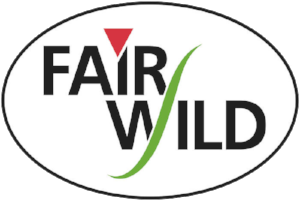FairWild Standards prove their worth in Bosnia and Herzegovina
Bosnia and Herzegovina, 12 August 2009—experts in sustainable management have given their strong approval to the new sustainability standards for the collection of wild medicinal and aromatic plants (MAPs), after testing them in Bosnia and Herzegovina during an 18-month pilot project on Wild Garlic Allium ursinum.
Bosnia and Herzegovina, located in south-eastern Europe, is a major source country for medicinal and aromatic plants collected in Europe.
The Wild Garlic project in Vlasenica, in the eastern part of Republica Srpska, is one of six projects world-wide field testing the implementation of the new FairWild Standard for fair and sustainable harvest of MAP species.
Twenty experts, including participants from the Ministry of Environment, Ministry of Agriculture, Forestry and Water Management, local forestry authorities, medicinal plants collector and producer companies, academic institutions and civil organizations met last month at Vlasic Mountain, to discuss how the project had fared during its 18-month trial period.
They concluded the project had been an outstanding success, thanks to the strong co-operation of the relevant stakeholders, including the regional forest authority, resource management authorities, scientific institutions and businesses such as Elmar d.o.o.—a partner collecting company—who fully supported the FairWild Standard implementation and continuous species monitoring.
“We hope the Wild Garlic project in Bosnia and Herzegovina will serve as a model approach that is widely replicated across South-East Europe,” said Anastasiya Timoshyna, TRAFFIC Europe’s Medicinal Plants Officer.
Meeting participants noted the FairWild Standard represented a valid means to achieve sustainable harvesting and management for MAP species, and encouraged the implementation of the Standard’s principles for more species, particularly those of conservation concern, such as Helichrysum italicum and Gentiana lutea.
They also recommended that sustainable collection and management principles be included in national regulations in Bosnia and Herzegovina and encouraged continuing dialogue between relevant government officials, who are currently reviewing the legislation on non-timber forest products in the region, and companies and scientific institutions.
TRAFFIC, WWF and IUCN hope to continue their work in South-East Europe to encourage the further implementation of sustainable use and management schemes for MAPs.
The new FairWild Standard was drawn up through a combination of an existing FairWild Standard and the International Standard for Sustainable Wild Collection of Medicinal and Aromatic Plants (ISSC-MAP), developed by TRAFFIC and others in recent years, a process largely funded by the German Federal Ministry for Nature Conservation (BfN).
The German Federal Ministry for Economic Co-operation and Development (BMZ) supported the Wild Garlic and other pilot implementation projects worldwide.
For further information please contact:
Anastasiya Timoshyna, Medicinal Plants Officer, TRAFFIC Europe – Central European Project Office, Anastasiya.timoshyna@wwf.hu
Sladjana Bundalo, Consultant, TRAFFIC Europe, zsratkovic@yahoo.co.uk
